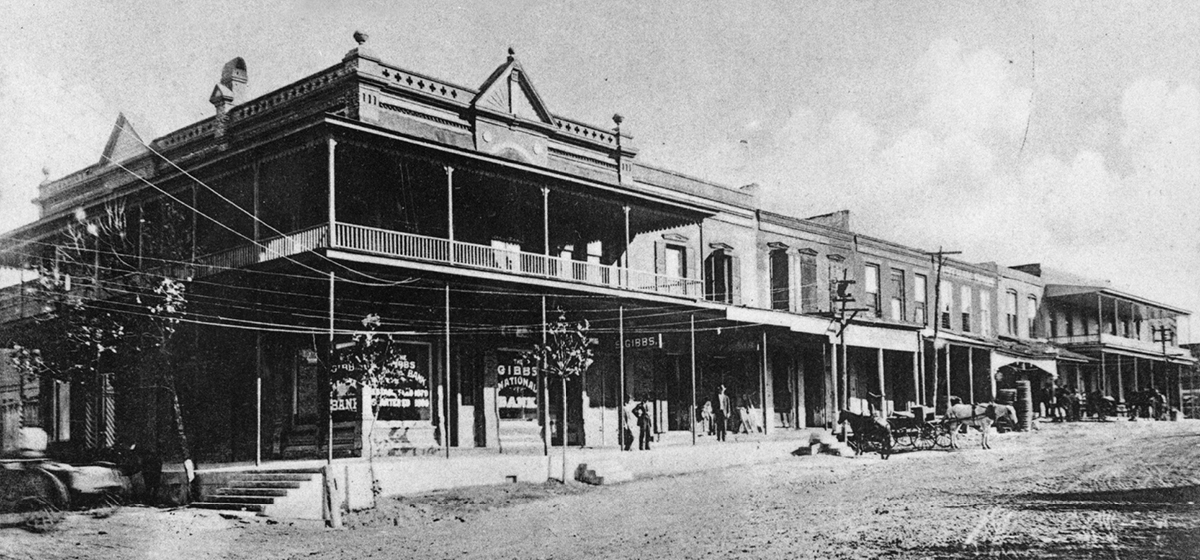 Photos by Kelly Sue Photography
Photos by Kelly Sue Photography
On December 12, Morris Bateman turned 100 years old. During his remarkable lifespan, he served in the U.S. Navy during World War II, worked for the Lufkin and Conroe telephone companies for a combined 47 years, and saw Conroe grow from an oilfield town with dirt roads to a thriving city. A 67-year member of the Conroe Noon Lion’s Club, Morris still drives his red Camaro convertible around town.
My dad was a schoolteacher in east Texas towns—Tyler, Geneva, Nacogdoches. After my mom died, he bought me a car. I had to drive my sister to school in that old Chevrolet car. It was a coupe—two seats. It didn’t have a back seat. Three people could ride in the front. It had fenders on it, and kids in that neck of the woods would hang on those fenders and ride. The police would make them all get off. I went to grammar school in Nacogdoches and high school in Lufkin. I had one year at Stephen F. Austin. I got a job during the summer with the telephone company, and I was there ever since. I worked 47 years for the telephone company.
In 1948, I was the wire chief of the telephone company in Lufkin. They bought the company in Conroe. They told me, “Get yourself to Conroe, and you can be manager.” I was making $150 a month over there, and they raised me to $300. I was blowing and going! That was wonderful.
 What was Conroe like in those days?
What was Conroe like in those days?It was an oilfield town. Everything here was about oil and gas. Mr. Strake found oil in the early days, and it boomed. He was a wildcatter and hit a well, and everything went crazy. Everything was on the square. My little office was over a dress shop. There weren’t any shopping malls or four-lane roads. Clothing stores, grocery stores—it was all on the square. I built me a new house out on Everett Street. It was a dirt street. I watered the road so the dust wouldn’t fly. On Saturday nights, I parked on the street in downtown Conroe and watched the people go by. The town was full of people on Saturday nights. Now everybody has four-lane roads and shopping malls and HEB and Kroger. It’s no fun to buy groceries now. Election years were a big deal. We would have pie auctions to raise money for candidates. They would auction off pies and cakes on the square.
Every town in the U.S. had a telephone company. If you needed a job, you could go to any town in the country and get a job, because everybody needs a good telephone man. You know, a telephone man now doesn’t know what the old telephone men did. Now you get a bucket truck. I used to hang up there with my belt and then climb down. In Lufkin, I was a wire chief. My job was to keep that switchboard working for the girls to talk on it. When I came to Conroe, there were 625 phones in the whole system. I became the manager of the Conroe Telephone Company. There was nobody here but me and one employee. There wasn’t even a truck. They gave me $100 a month to buy my own truck. Then I took an employee’s truck and gave him $100 a month to use his truck.  Later on, we got to where we could buy one. It cost $1,400. Texaco and Humble had camps for people; Shell had a camp. The workers would live in those little houses. I strung wire all along the street. Those were my customers. I was putting phones in everywhere.
Later on, we got to where we could buy one. It cost $1,400. Texaco and Humble had camps for people; Shell had a camp. The workers would live in those little houses. I strung wire all along the street. Those were my customers. I was putting phones in everywhere.
What really hit this town was Lake Conroe. A subdivision here and a subdivision there, and people just moved up here like crazy. We built the April Sound telephone office and the Walden telephone office and one out in Cut and Shoot and another one in River Plantation. Everywhere there was a lot of people, we would have a telephone office. We couldn’t keep up, so I was hiring construction crews everywhere. At one time, I had four construction crews in Conroe building telephone lines. Conroe sure has grown. The cars are bumper to bumper out on the loop.
 You probably remember a lot of events that many people have only heard about. What were you doing when you heard about the attack on Pearl Harbor in 1941?
You probably remember a lot of events that many people have only heard about. What were you doing when you heard about the attack on Pearl Harbor in 1941?I was in my dad’s home visiting in Tyler, Texas, and I said, “Daddy, I know that I will have to go to the service, because we are going to go to war.” Sure enough, I spent three years in the Navy. I said, “I am going to get on a ship and have a girl in every port.” I never got on a ship, and I never had a girl in every port because I was married! I went to Corpus Christi. Every electric motor that came out of that repair shop had to come through my inspection. Those civilian mechanics were probably making $10 an hour. They didn’t like it when I would reject a generator. I would give it back to them and say, “Fix it! It’s not right! Read the book!” When they got on a plane, it was ready to go. After two years in Corpus Christi, I got tired of it and tried to get out of that place. I had good duty, but I wanted to see something different. They sent me to Bremerton, Washington. I got up there, and they found out I was a qualified typewriter repairman. I went to school and learned how to repair teletypes, which the phone company had. While I was there, I learned how to repair typewriters. After the war, I came back to Lufkin, and my job was waiting for me. That was one thing about the war; jobs were supposed to be held for you. They put me back to work at the same company.
Nobody left the house. We watched that thing on the television. When I see that moon right now, I think, “How can you get a man up there to walk on that moon?” I can’t figure why we went up there to start with. What did we learn? Every piece of equipment was a new technology that came to life. Every piece of equipment is being used for everything imaginable, like satellites. You get in the car and punch a few buttons to find out where a building is in Houston—it’s all satellites. It’s all because of our space program. I can call somebody in Europe just like that, and it came from the moonshot.
 What has been the most surprising technological innovation you’ve seen in your lifetime?
What has been the most surprising technological innovation you’ve seen in your lifetime?Cell phones. In the funny papers, Dick Tracy had a radio on his wrist. He was always talking on his wrist. Every time I talk on my phone, I think of Dick Tracy. You can look up records. You can take pictures. I bet the Kodak people went out of business. You take pictures with your cell phone.
I have been a member of the Lion’s Club for 67 years. The club was started in 1935, and I joined in 1948. We only had about 15 or 20 members. It was the businesspeople of the town. There were no women in the club whatsoever. Women joined about 20 years ago. The women really did bring this club to life. We just enjoy the heck out of having women in the club. The Conroe Noon Lion’s Club has a really efficient program. We have had it for years. We work on eyeglasses; we bring them to Conroe from Houston.  We have a building in Conroe that has an eyeglasses repair shop. There are thousands of pairs of glasses, and we repair them. I have been the head repairman for six years. That’s all I do is repair glasses. You would think a 100-year-old man couldn’t see those little parts, but it’s no sweat. I work on them every Tuesday from 9:00 until 3:00. I am the only one they’ve got. We’ve got a routine there. We put them in a dishwasher. Some ladies dry them and put them in a box and bring them to me. I work on the ear pieces—they have to be even. You line them up. And when you fold them up, you want them to line up. When they leave me, they are ready to be put on somebody’s face. They go to another place, where they put them on a computer to tell what strength they are. If anybody needs a pair of glasses with that strength, we’ve got them. Kids in all schools in Montgomery County can get free glasses. They go to the doctor and get their prescription, and come down there and get a pair of eyeglasses.
We have a building in Conroe that has an eyeglasses repair shop. There are thousands of pairs of glasses, and we repair them. I have been the head repairman for six years. That’s all I do is repair glasses. You would think a 100-year-old man couldn’t see those little parts, but it’s no sweat. I work on them every Tuesday from 9:00 until 3:00. I am the only one they’ve got. We’ve got a routine there. We put them in a dishwasher. Some ladies dry them and put them in a box and bring them to me. I work on the ear pieces—they have to be even. You line them up. And when you fold them up, you want them to line up. When they leave me, they are ready to be put on somebody’s face. They go to another place, where they put them on a computer to tell what strength they are. If anybody needs a pair of glasses with that strength, we’ve got them. Kids in all schools in Montgomery County can get free glasses. They go to the doctor and get their prescription, and come down there and get a pair of eyeglasses.
 Tell us about your family.
Tell us about your family.I was married 52 years to my first wife, a sweet little lady. I just have one son. My second wife is Barbara Metcalf. Her husband died a long time ago. She and my wife were friends. I told her, “I am so lonesome eating by myself. Would you come have dinner with me sometime?” I finally dated her a few times. We were so friendly, we decided to get married. We have been married 25 years. I have been married 77 years—most of my life! I guess somebody can put up with me.
My genes—Lord knows where I got them. My daddy died at 80. Mother died at 45. A sister died at 60, and I’ve got a brother still living, so maybe he has my genes. The only time I have been in the hospital was for one hip replacement. I’ve never been sick. I take one pill and that’s all—for cholesterol. I have no aches and pains or nothing. People can’t believe it. I’ve never had any problems.
 And you still drive your red convertible!
And you still drive your red convertible!I’ve had five convertibles. One was a Thunderbird. The last year they made a T-Bird convertible was 2005. I gave that one to my son when I got my red Camaro convertible. It’s a 2011. It has 6,500 miles on it. Somebody said the other day, “You are wearing it out!” I said, “I sure am, going to church and back.”


